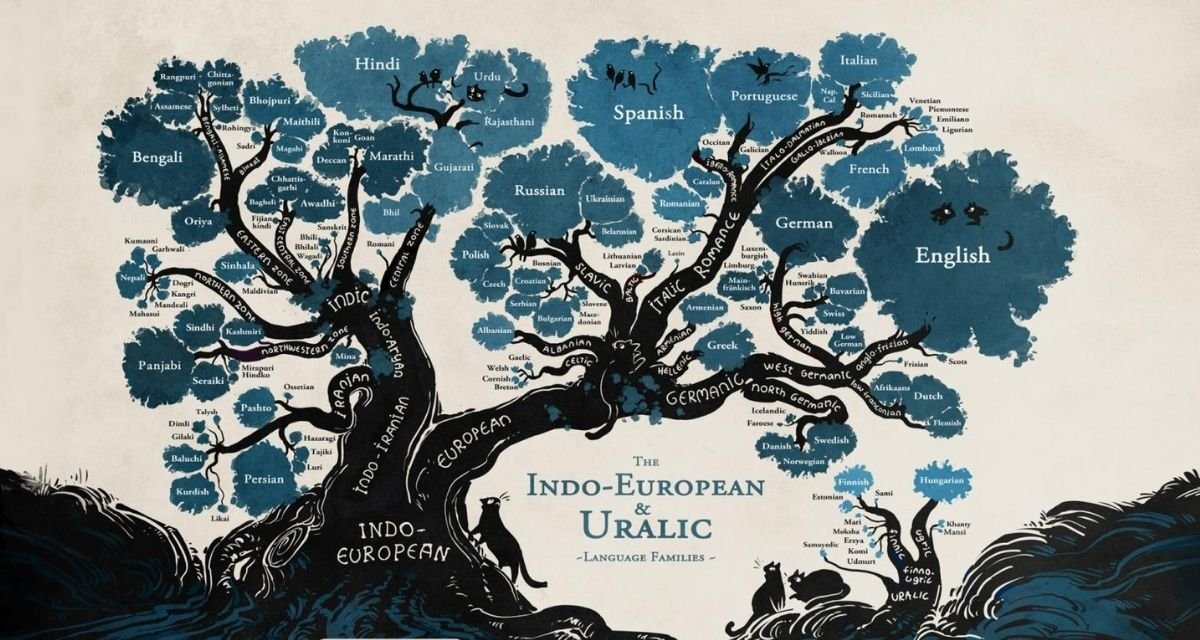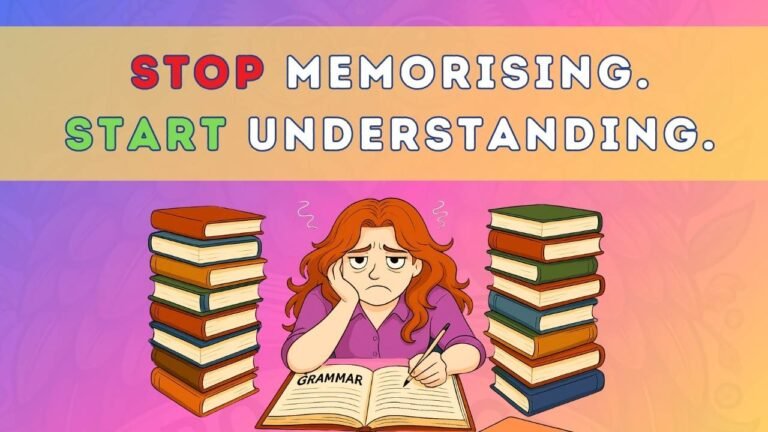One of the most frequent questions we as teachers get asked: how long will it take me to learn a language? Will I be able to learn XY language in XY time?
It’s completely normal to want to know these things beforehand: you want to know how much time, effort, and money this quest of yours will require of you so that you can plan around it.
For any working professional, this is a very complex question to answer. There are many factors that need to be taken into consideration as every learner and every language is different. While it’s very tempting to make flattering promises in that moment, the truth is that there is no universal answer.
We’ll take a deep dive into the aspects that we need to keep in mind when asking −and answering −that question. And we’ll start by answering what it even means to learn a language? This might seem very obvious, but given how saturated with misinformation and confusion the language learning community is nowadays, we felt that further clarification is needed.
WHAT DOES IT MEAN TO LEARN A LANGUAGE?
Everyone has different reasons for learning a language, especially in our modern, globalized world. You might need a language for travel, for work, or simply because you like it − the options and stories we’ve heard are countless.
It is therefore not surprising that our standards and ideas about what knowing a language means vary a lot. The question is – what do you expect to be able to do after you’ve learned a language? Do you think you should be at Nicole Kidman’s level in Interpreter or do you believe knowing a language is being able to order a bottle of wine in an Italian restaurant and hold an informal conversation? We’re talking about two very different levels of knowledge here.
The chances are, even if you only had a little contact with a foreign language in high school, you’re going to mention it years later when someone asks you if you know any languages. You’ll say that you ‘know some Spanish’ or even put it down in your CV as a language you speak, in the same way a proficient user would do.
What a lot of people mean when they say they know a language is that they know about a language, which is not the same as being able to use to it actively and independently. This means learning the alphabet, the pronunciation, some conjugations, and declensions…
However, when it comes to the actual output (producing in either speaking or writing) they find themselves halting and lacking confidence. This means they’re not fluent − one of the most controversial words in the world of language learning and we’re about to find out why.
Bear in mind that there are also people who do have plenty of confidence when speaking, but that doesn’t mean they’re fluent. They make a lot of mistakes and make no effort to correct because they believe themselves to be fluent.
However, we don’t believe that Del Boy’s French is anyone’s learning goal:
So what are, objectively and realistically speaking, levels at which you’re considered to have truly learned a language?
PROFICIENCY VS FLUENCY – KNOW THE DIFFERENCE
According to the Cambridge Dictionary, fluency is ‘the ability to speak or write a language easily, well, and quickly.’
Even though everyone embarks on a language learning journey for reasons of their own, it’s safe to assume you don’t do it because your end goal is to speak slowly or stumble over your words. You probably want to learn how to speak smoothly, with little to no effort − fluently.
But what does that really mean from a linguistic point of view?
Let’s look at the Common European Framework of Reference for Languages (CEFR), an international standard used to describe language skills on a six-point scale, from A1 for beginners to C2 for those who have mastered the language.

BASIC USER
As you can see from the graphic presented above, at A1 and A2 level you are considered a Basic User. Learners at this stage are all about input. They are being exposed to listening and reading in the new language and developing their comprehension. They are deconstructing common patterns and applying pre-extracted linguistic rules in limited and narrow situations.
At this level, they are hardly independent. Their brain can navigate only in specific contexts and produces only a set of learned formulas and expressions. As a matter of fact, their entire expression depends on these fixed formulas.
This is where the language is a foreign concept in the brain, and it takes a lot of cognitive effort to use it. Students still very much think in their native language and their brain performs mental translations in order to use the second language. This is notable in the way they formulate thoughts and sentences and in their errors. At this time, a lot of input is floating around in their brain, trying to take root. This is when it must be reinforced further through a lot of practice in order to transform into independent output later.
I like to think of this stage as a brewing stage. The brain is a jar and you stuff it with all the best ingredients where they proceed to brew and soak in.
Students at this level benefit the most from a highly skilled tutor who is also educated in the student’s mother tongue. Such a tutor can make them aware of their thinking patterns and help them separate their first language from the second by drawing clear parallels.
INDEPENDENT USER
Fluency in output doesn’t really start until B1 and B2 levels − when you start using the language independently. Here you’re able to produce accurate output based on the solid foundation you built at A1 and A2.
This is often where most people give up and stop learning.
B1 usually makes or breaks the learner, and B2 propels them to mastery.
Suddenly, all your passive knowledge from the Basic Levels needs to be expanded upon and used actively.
Your brain is working very hard to compartmentalize information. It is stretching itself to adopt and integrate a new system fully alongside mother tongue, but most importantly – separately from it. You are starting to think in foreign language, instead of doing mental translations.
This is the period of linguistic integration, and one where students make most mistakes and feel most discouraged because they are experiencing growing pains.
They are required to think on their own, more complexly and in more advanced contexts. They are expected to start developing understanding of nuances in meaning through both grammar and vocabulary, and to successfully apply them.
Being independent in production means that you can speak quite spontaneously. You can have casual conversations that can deviate slightly, describe stories and events in your life. You are also able to watch movies or read some contemporary literature. As long as it’s around subjects you’re familiar with, you shouldn’t have an issue. However, you’re also starting to expand your dominion over different linguistic registers – you expand from everyday use to more formal.
This stage is the baking stage. You take all those ingredients from the jar only to try and make the best pie.
Note also that at B2, you begin to understand colloquial uses. More than that, it’s when you start shifting between different registers. You adopt different styles, notice nuances in meaning and acquire correct synonyms. It means you’re becoming comfortable with the language, leading to greater confidence and fluency.

That sounds pretty advanced, right? And maybe what you were aiming for, but what’s the difference then between a solid, B2 independent user, and someone who’s reached C2 level, that is, who has reached proficiency and mastery?
PROFICIENT USER
According to CEFR, a learner at C2 level can:
- understand with ease virtually everything heard or read
- summarize information from different spoken and written sources, reconstructing arguments in a coherent presentation
- express themselves spontaneously, very eloquently and precisely, differentiating finer shades of meaning even in the most complex of situations
- effortlessly switch between registers
Being proficient in a language means that you’re not at a disadvantage in comparison with the native speakers in any given situation. You can function in academic environments, high level business meetings, and read any literature. Your vast vocabulary and acquired intuition for language allow you to distinguish and accurately use nuances in meaning.
ACQUIRING A “FEELING” FOR LANGUAGE
To use a language intuitively and proficiently means that you have a distinct feeling for right or wrong, in the same way you would feel in your mother tongue. There’s also an aspect to this that isn’t mentioned in the CEFR, but that we’ve had the chance to observe over the years − the cultural aspect.
This doesn’t necessarily mean that you possess a vast knowledge of culture, although that’s definitely a part of it, but that you’ve become a little bit like a native speaker. You don’t only speak the language through the mouth, it is in your gestures, humour and even in the way you think and articulate your thoughts. The correct pitch, intonation and body language play a big role in fluency.
You’ve probably already heard that a language can shape the way we think, in the sense that our mindset changes a bit when we’re talking in that language. We become a bit of a different person.
Once you’ve reached such a high level, you’ve become part of the collective unconscious of a nation.
At C2, you are not only able to express yourself academically, but the language is so well-integrated in your consciousness that you are suddenly thinking in it spontaneously and subconsciously. You find yourself counting in that language, and your emotional life has almost the same weight in the second language as it does in the mother tongue.
Additionally, you develop different sociolects, a so-called linguistic variety which is thought of as being related to its speakers’ social background rather than geographical background. Sociolects are defined by the speakers age, education level, economic status or profession.
SO HOW LONG WILL IT ACTUALLY TAKE ME TO LEARN A LANGUAGE?
The truth is that there is no universal answer to this question. There are, however, some parameters that you can use in order to give yourself a reasonable estimate. So let’s start from the beginning:
1. YOUR MOTHER TONGUE AFFECTS YOUR LEARNING
When learning a new language, it’s a given that we’re going to, consciously or unconsciously, compare that language to what is already familiar to us − our mother tongue. Starting from the most visible difference and the first thing you learn in any language – the alphabet. What about phonology (sounds of a language), lexis (vocabulary) and syntax…
For example, Spanish is hard to pronounce correctly for German speakers due to its apparent softness. Those differences in the phonetic system are due to the fact that Spanish and German don’t belong to the same group of languages, meaning Spanish and German speaking nations don’t share the same historical, geographical, biological and social factors that shaped their languages.
Spanish is a Romance language, a language derived from Latin, same as French, Italian, Portuguese and Romanian. Therefore, it will be much easier for the speakers of these languages not only to pronounce Spanish, but to learn vocabulary as they all share the same ancestor − Latin.
2. YOUR EDUCATION LEVEL MATTERS
If you already have a good understanding of linguistic concepts that make up a language from education in your mother tongue, then it’s going to be easier for you to apply that to whichever language you’re learning.
The level of education in your mother tongue gives you an understanding and appreciation of a language as a complex system − and speeds up the process of understanding a new one.
3. LANGUAGE LEARNING EXPERIENCE HELPS
If you’ve ever successfully learned a second language, this has opened a doorway in your mind. Your brain has already absorbed and adapted to one entirely new system, leaving it primed for more. Brain is very elastic and once it adapts to something, it remembers.
Think of it as dancing – if you have trained in one genre, it’s going to be easier for you to learn other genres than for someone who has never trained in dance at all.
This is because you know what it takes to learn a language and how to learn it. You have the habits, the understanding of a language, you know what kind of resources work best for you and your brain is used to learning.
4. LANGUAGE LEARNING APTITUDE
According to the British Council
language aptitude refers to the potential that a person has for learning languages. This potential is often evaluated using formal aptitude tests, which predict the degree of success the candidate will have with a new language. Aptitude tests vary but many include evaluation of ability to manage sounds, grammatical structures, infer rules, and memory.’
To put it shortly – this is your ability to analyse how languages work, find patterns and make your own deductions. Your level of LLA can greatly influence how long it will take for you to learn a foreign language.
And while it’s true that some people just have the inherent knack for languages, in the same way someone does for music or for drawing, this shouldn’t discourage your from tackling your goals.
5. YOUR STUDY PLAN AND YOUR TUTOR
So far, we have seen how your natural predisposition, your education level and your mother tongue might speed up the process of learning a new language, but even if you’ve ticked off all of the boxes, that will mean very little without a good study plan.
This means having a good management of your time, but also finding a qualified tutor that can give you quality feedback and resources. To read more in depth about how to make a sustainable study plan, read our article on How to build a good study plan?
We’d especially like to stress the importance of feedback and smart, targeted learning when it comes to the speed of language learning.
You can spend months and even years speaking with a native speaker who will not have the skills necessary to effortlessly execute the tricky balance between appropriate amount of high-quality input, targeted and layered practice, and skilled feedback necessary for learning to occur. You will make very little to no progress, despite the hours and money spent in class. For a tutor, it is nowhere near enough to just be a native speaker nor is it enough to just be good. If you are paying, ask for the best.
As a bare minimum, your tutor should provide you with a clear curriculum, a planned out structure, a plethora of visual and varied resources, they should develop all 4 of your skills equally, give you consistent and in-depth, written feedback and they should know the craft of educational practice very well.
In addition, if they are unable to provide explanations for anything and everything to help you learn with understanding and they tell you – because that’s the rule, you should consider replacing them with someone with more subject knowledge.
6. DOSE OF REALISM
From our experience, supported by the Cambridge University, an average learner will require around 100 guided learning hours to complete A1; 180+ hours to complete A2; 250-400 guided hours to complete B1, and anywhere from 500-600 guided hours to reach B2.
This is with good levels of motivation, quality resources and well-trained teachers.

Bear in mind that these are guided hours, so this doesn’t include the time you spend doing homework, reading, revising, preparing for a test, watching movies in that language, etc. Ever wonder why successful athletes, writers, painters, say it took them countless hours of practice to get to that level of mastery? While this expression can’t be literal because it did take them a certain amount of hours to get to that level, it conveys the message perfectly. They were too busy going at it to count every hour invested.
If you believe that your guided hours will suffice, or that you can learn a language by using Duolingo, this will seriously hinder your progress and, in consequence, the speed at which you learn.
Not accepting that it takes a lot of time and effort and more than playing online games for points to master a language is going against reality.
BUT HOW DID THEY DO IT? THE RISE OF FAKE FLUENCY AND FAKE POLYGLOTS
You might feel overwhelmed and intimidated at this point by the number of hours − and years, that might take you to reach either fluency or proficiency in a language. So you might think: but how did that guy from that YouTube video demonstrate his language skills that he apparently learned in just three months?
Don’t get us wrong − there truly are gifted individuals whose learning aptitude is through the roof, and they might learn multiple languages in a short period of time. However, we’re talking about an average learner here, which is the majority of population.
So what is a fake polyglot? Fake polyglots are individuals who create an illusion of fluency in order to showcase their knowledge of multiple languages. They are usually just people who can reproduce sounds very well, just like parrots. They create an illusion of speaking amazingly. This isn’t even as hard as it might sound, but if you don’t know the language, it will be hard for you to pick up these pre-rehearsed and usually very simple sentences.
But why would anyone want to pretend they know a language at such a high level? For the same reason someone leads a seemingly perfect lifestyle on Instagram: prestige, feeling of self-accomplishment and, of course − profit.
We’re going to talk more in depth about fake polyglots and fake fluency − and why you should beware of them − in our next article.
All in all, there’s a lot of misinformation out there about how long and what it takes to learn a language, or what learning a language even means.
We’ve established that this can be a very personal thing − for you, the goal might be to learn enough Spanish to lead a basic conversation.
However, for a more realistic and objective assessment, there are highly defined descriptors by CEFR ranging from level A1 to C2. Fluency is usually considered to begin at B1 and B2 levels, where you’re expected to be able to use a language independently.
Meanwhile, proficiency or mastery of a language corresponds to C2 level.
There are many factors that need to be taken into consideration before answering how long it might take someone to learn a language, like their age, their mother tongue or previous experience with similar languages, their general knowledge about a language as a system, the time they have and are willing to put into studying, their language learning aptitude, their attitude towards language learning and awareness that it is a process that takes years and never truly stops.
This might sound like an overwhelming amount of work and time, but we promise you − it is so worth it in the end.
LEARN HOW TO LEARN WITH ROMANCE LANGUAGE CENTRE
At Romance Language Centre, we believe in learning a language systematically and thoroughly – for life.
To help you make your study plan even more effective, check out our expert advice on how to better your listening and reading skills:
Stay tuned for our next article on how to best expand your vocabulary while we’re working on our own, exclusive edition of flashcards for you.
To hear more about it, visit our YouTube channel and join our Facebook group Learn Languages with Understanding.















